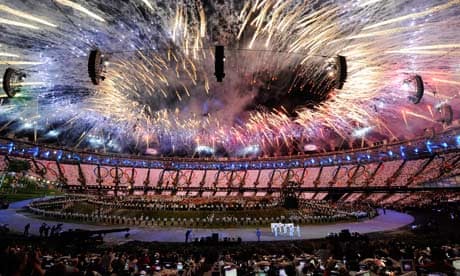Mention the words "religious broadcasting" in polite company and you can feel the slightly embarrassed echoes of Songs of Praise and Thought for the Day float away into the ether. It's not a great theme to introduce in chat-up lines at parties either.
Which, of course, is a tragedy.
There are two problems here: (a) the word "religious" has become popularly associated with concepts such as "tedious", "dangerous" or "problematic"; (b) the word "broadcasting" seems to leave out all the social and digital media that now grab the first bite of most people's engagement.
The latter is easier to deal with quickly. As the Olympics opening ceremony proved, there is still a place for the mass shared audience experience, even if many of those watching are also tweeting their reflexive responses to what they see on their screen.
The former is a tougher nut to crack. Before 9/11 religion was seen in the west as a disappearing phenomenon; post-9/11 it was seen as a growing problem.
The truth, however, is that religion encompasses the whole of human experience and cannot be shunted off into some corner reserved for private opinion or "weird stuff". And it isn't simply about what people "believe".
Excellent religious broadcasting matters because it plays on a broad field that encompasses politics, economics, ethics, art, drama, sport, biography… and anything that has anything to do with human life, motivation or collective living. Religion not only shapes how communities organise, but also is integral to any understanding of why people are who they are and do what they do in the ways that they do it. And this space should not be reserved for people who claim to be religious (in any sense); it brings into play anyone who is interested in why the world is the way it is and what makes people live the way they do.
It is possible to argue that the world needs more, not less, religious broadcasting. At a time when mutual incomprehension (partly in the light of fundamentalisms) causes difficulties, there is a massive need for good programming that interprets, explores and explains human motivations – especially when they have roots in particular religious world views, practices or rituals.
In one sense, this shouldn't need to be pointed out. This isn't about special pleading for minority interests or finding excuses for broadcasting no one wants to watch. On the contrary, it is simply to recognise (whatever particular world view I or others might hold) that religion is massively important to the world and needs to be understood and interpreted.
I chair the Sandford St Martin Trust, a charity that promotes excellence in religious broadcasting and awards the most prestigious prizes in this field. The quality of submitted entries for 2013 is extremely high. Many of the shortlisted programmes were not made in or for a religious category. But, like the Olympics opening ceremony, they are driven by or include themes that are simply incomprehensible without some understanding of religion (as an economic or political motivator, for example) or religion as a factor in history.
The field is wide open for commissioning editors to cast a wide and creative net, awakening curiosity and digging deeply into the shape of human experience. We need more. And we need more confidence to be shown in scheduling such material.
